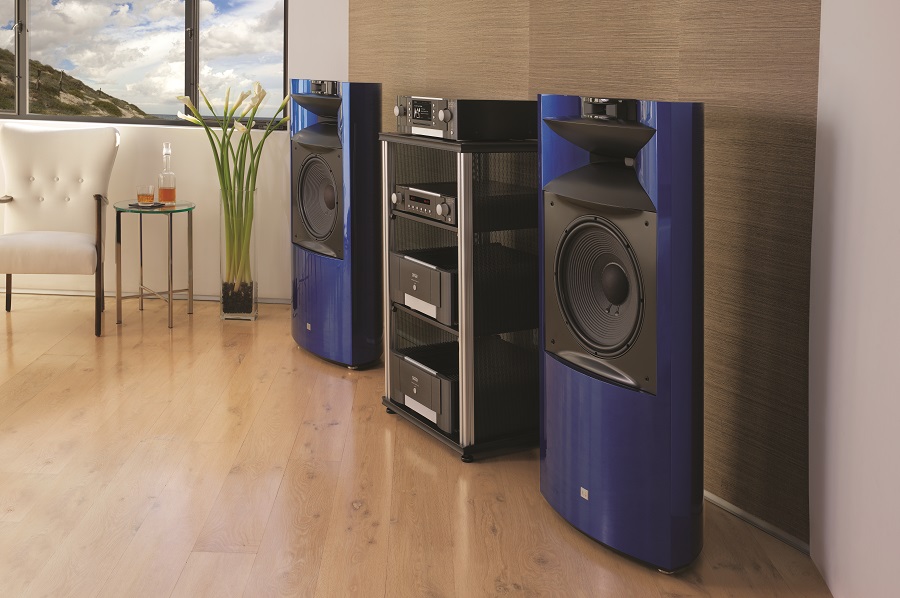
Introduction to 2-Channel Audio Systems
Everything You Need to Know About High-Performance Audio
When it comes to home audio there are usually three basic speaker setups: surround sound, 2-channel audio systems, and whole home audio. They each serve a particular function whether it's background music in the kitchen or creating lifelike explosions in your dedicated home theater. So what's the purpose of a 2-channel stereo? The preferred setup of audiophiles worldwide, it's meant to recreate the concert experience in your Buckhead, GA home. In this blog, we highlight some of the most commonly asked questions about high-end sound so you can find the best system for your home.
SEE MORE: Introduction to Home Automation and Control
What is the Ideal Setup for High-End Sound?
While wireless or in-ceiling speakers are perfect for background music when performing tasks or hosting friends, 2-channel systems offer the best audio reproduction possible. Stereo recordings include left and right channels to provide multi-dimensional sound. A 2-channel setup does its best to recreate that environment in both the way the speakers are set up --at each side of the listener--and the way the speakers play back the sound.
What Are the Components of a 2-Channel System?
At its most basic, your system includes two speakers, an amplifier, and your source components. It’s important that you don’t settle for retail options for any of these. Unfortunately, many people’s first forays into high-end audio can be ruined trying to understand the spec sheets for amps and speakers. The experts at Digital Interiors can help you find what works best according to your budget and priorities. You can even test-drive some of our favorite speakers in our experience center to see which one you think sounds best. Below we highlight some top things to keep in mind:
- Speakers: We generally partner with James Loudspeakers and JBL/Harman for models that offer low distortion, high-power handling and balanced sound. With their wide-dispersion speakers you can even move around the room without noticing a shift in volume or quality.
- Amplifiers: We generally partner with Lexicon and Audio Control for our amplifiers. When choosing amplifiers, we generally work with specific 2-channel amplifiers with high power ratings and dedicated stereo settings. Finally, look for amplifiers with big headroom. This means they can reach high volumes and high notes without getting distorted sound.
- Cables: 2-channel systems are all about creating a succesful audio chain. Each component needs to be of the utmost quality, and this is also true for the cables that will be bringing it all together. We work with Audio Quest to ensure your signal makes it through clearly from your sources all the way to your speakers.
What is the Best Location for a 2-Channel System?
For true audiophiles, a 2-channel stereo system isn’t complete unless it’s in a dedicated listening room. This way you can make sure you're sitting equidistant to each speaker, so sound from each one reaches you simultaneously. You can also create the ideal acoustic setting for your high-end audio. The perfect space has carpet and no windows to keep the audio signal from bouncing around. You want to avoid square rooms or ones with really high ceilings, as that could disrupt the sound as well. If there are any trouble areas, Digital Interiors can also install acoustic treatments to better absorb and diffuse the sound throughout the room.
What Music Can I Listen To?
Traditionally, 2-channel stereo audio systems go with turntables. That's because vinyl records offer the best sound reproduction compared to CDs, MP3s or streaming services. Records are analog recordings so they can better recreate the original audio. CDs and MP3s use digital files which take snapshots of an analog signal at a particular rate. Inevitably, you're going to lose some of the details along the way.
While turntables are ideal, your 2-channel stereo system can be linked up to any device. Many high-end amplifiers and loudspeakers now even come with Wi-Fi or Bluetooth capabilities so that you can easily access your favorite streaming services. You can also use a media server with your music library.
If you're using digital sources for your high-end audio, go with high-resolution uncompressed files like FLAC or ALAC. These have a higher bitrate—meaning more snapshots—so you get a more detailed recording than you would with a regular MP3.
Not sure if a 2-channel system is a right fit for you? Contact us to learn more or visit our showroom to experience the difference of high-end audio firsthand.



